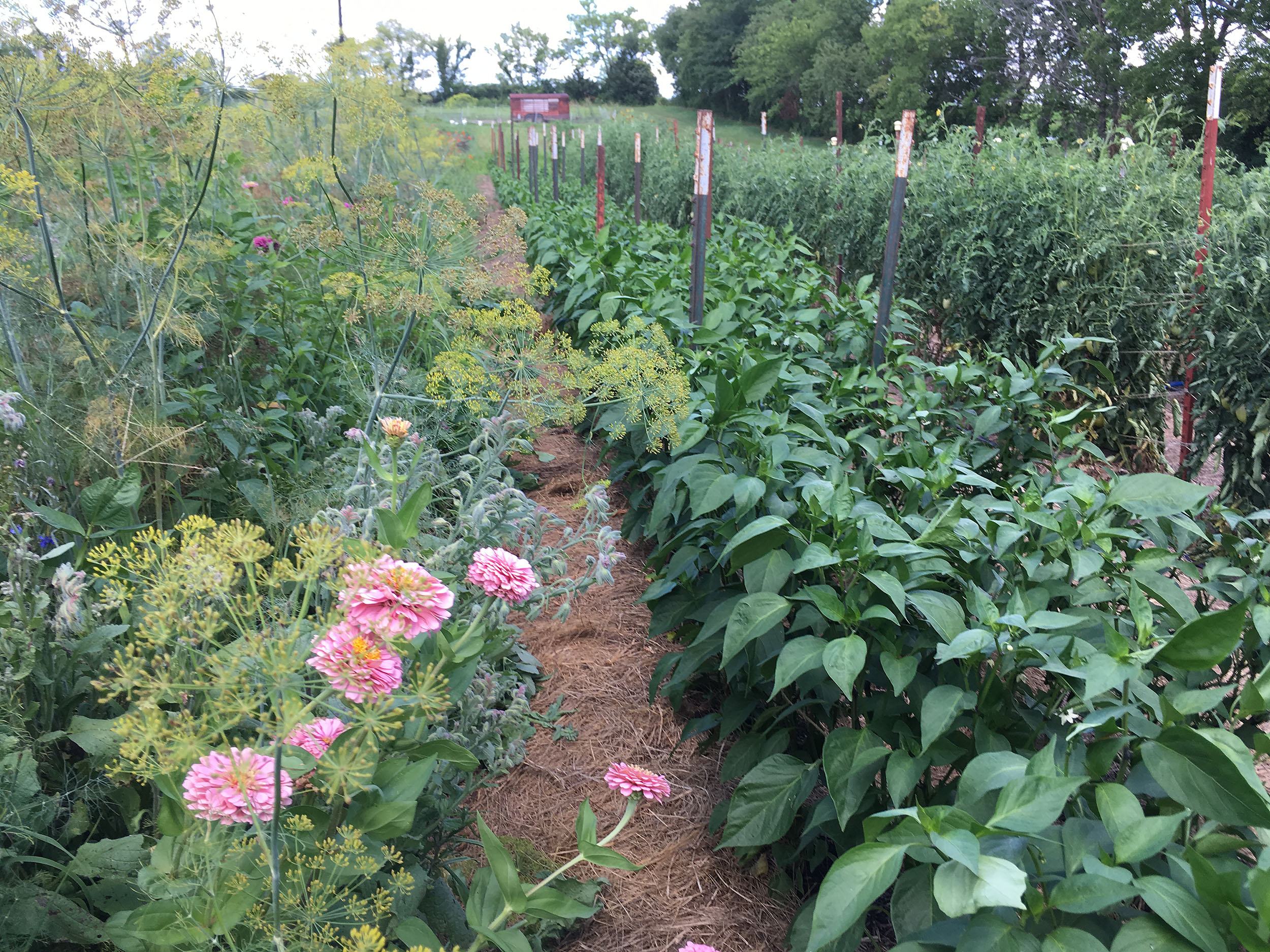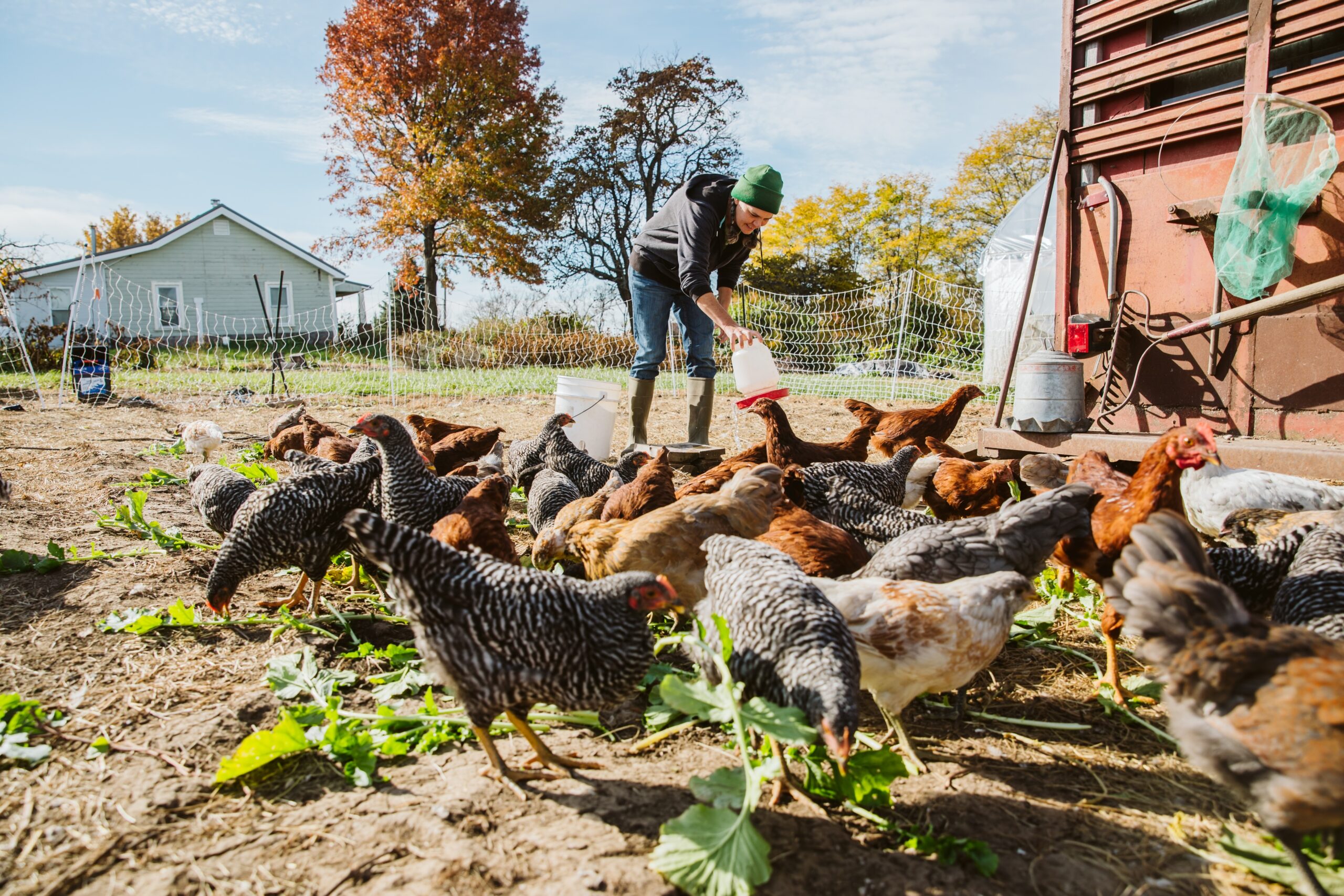We maintain and build healthy soils through biological farming practices that include: cover cropping, compost application, extensive mulching, rotating crops annually, rotational grazing, and reducing tillage.

Farming Practices
- The nutritional value of food produced at the farm is preserved by practicing careful post harvest handling methods including: washing and cleaning of produce, storage of produce at appropriate temperature and humidity, and training of workers on proper food handling practices.
- We irrigate our fields from an on-farm surface water pond using a 1400 watt solar panel system and a Grundfos submersible pump.
- Our greenhouse is passive solar design, partially earth-bermed and containing over 50 black barrels filled with water for heat storage. This design reduces heating costs during late winter and early spring when we are growing our transplants.
- The electric power for the farm is provided by a recently installed 20k solar array. We are also tied to the grid and purchase Missouri wind power through our electric cooperative’s Green Power Program as needed. Since 2004 all electric power purchased for the farm has been associated with this program. This has accounted for a reduction in carbon dioxide emissions for the farm of over 400,000 lbs since January 2004.
- Our Allis-Chalmers G tractor has been converted from gas to electric power. It is powered by a 48-volt battery pack that is charged through power provided by our electric co-op’s Green Power Program.
- We reduce “food miles” by selling produce locally and donating CSA shares not picked up to local food pantries.
- We manage our fields to create beneficial habitat for wildlife and encourage diversity.
- Our passive solar greenhouse, solar-powered irrigation system, 20 kW solar array, electric utility vehicle and electric tractor all serve to reduce the farm’s carbon footprint.
- We conserve natural resources by reducing erosion and pollution of air, soil, and water, through responsible farming practices.
- We reject the use of synthetic insecticides, herbicides, fungicides, fertilizers, GMO’s and chemically treated seeds.
